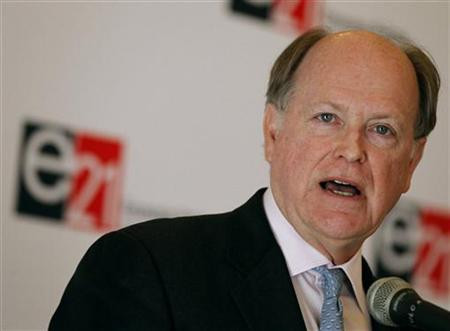Dollar May Extend Gains as Hawkish Plosser Offsets Weaker-Than-Expected US Non-Farm Payrolls

The negative surprise in the US non-farm payroll data on Friday has been offset by the weekend remarks by a senior Federal Reserve official, who called for sooner rate hikes in the world's largest economy.
Charles Plosser, the President of the Philadelphia Fed, said: "In the current context, we must acknowledge and thus prepare the markets for the fact that interest rates may begin to increase sooner than previously anticipated."
He was addressing a bankers' conference in Pennsylvania on 6 September.
Plosser shrugged off the August jobs data that showed non-farm payroll addition in the US dropped to 142,000 from 212,000 in July while analysts had been expecting an increase to 225,000. Plosser said the longer-term picture is promising.
"I prefer to look at longer-term trends rather than monthly numbers that are still subject to revision. Year-to-date monthly average job growth has amounted to 215,000 jobs this year, compared with a monthly average of 194,000 jobs added last year," Plosser said.
Plosser openly criticised the Fed's forward guidance regarding the expected timing for raising the funds rate and asked the central bank to be data-dependent.
"Appropriate monetary policy must respond to the data. By indicating that the FOMC continues to anticipate that it will be a "considerable time" before it is likely that the Committee will raise interest rates does not reflect the significant progress toward our goals," Plosser said.
Asian Currencies and Dollar
The US dollar has rallied sharply in the recent days helped by better data outcome from the US, while a surprise rate cut by the European Central Bank on 4 September added to its relative strength.
Escalating geopolitical tensions on Russia-Ukraine border and the Middle East had also aided the dollar rally through safe haven flows.
The USD index, the gauge that measures the greenback's strength against a basket of major currencies on a trade-weighted basis, had soared to a 14-month high of 83.94.
The index ended its eighth straight week of gains on Friday and has rallied more than 4.6% over that period.
Many Asian currencies had weakened against the dollar in the recent past due to the broad dollar rally and therefore, the weaker-than-expected jobs data was seen as a factor that could reverse some of such losses on Monday.
Most Asian currencies had closed Friday's deal by the time the US data was published and therefore, Monday is the first opportunity for the regional units to respond to the signals from the US.
Now that a senior Fed official has openly questioned the central bank stance of continuing accommodative interest rates, the greenback is likely to strengthen further, and should weigh on most emerging market currencies.
The Indonesian rupiah is trading near a one-month low of 11,800 while the Malaysian ringgit is down to a more than three-week low of 3.194.
The Indian and Chinese currencies, are however, showing strength against the dollar, thanks to the inherent strength of the respective economies. The rupee has touched a two-month high of 60.19 while the yuan is holding near a six-month high.
India's second GDP growth has surprised on the higher side, data on 29 August showed, and its big neighbour China is also expanding at or above the trend rate.
© Copyright IBTimes 2025. All rights reserved.






















